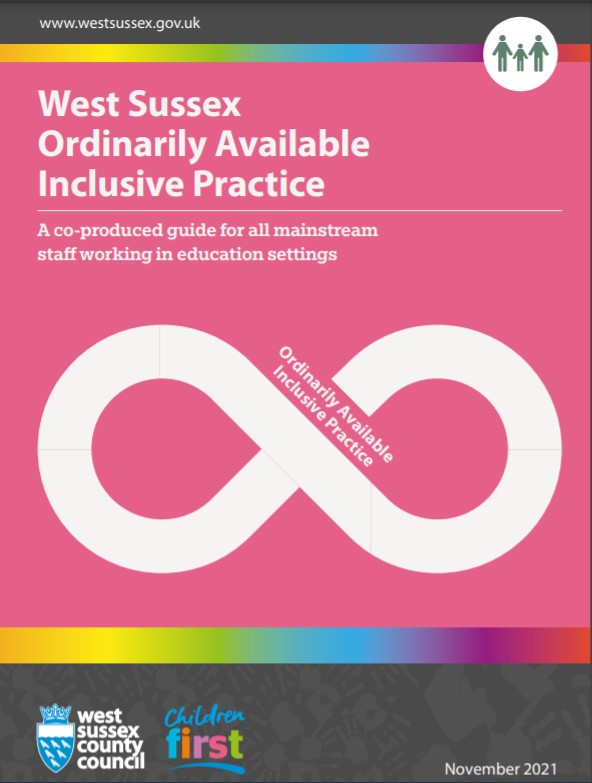All children with additional needs should be encouraged to access strategies and resources typically available as described in Section 1. This additional early years annex contains a range of early years strategy suggestions that could be considered for use, if appropriate, for an individual child. Please see the main Section 2 for strategies for older children and young people.
Please note: Any provision or support should be provided in line with the needs of the child; it should not be dependent on any formal diagnosis. Even if a diagnosis has been given, it is paramount to remember that each child has strengths and needs which are unique to them. For example, autism is a spectrum condition – everyone with autism is different, each person having different needs and requiring a range of effective support strategies. Please see the online SEND Toolkit for further information.
For all children, withdrawn, behaviours that challenge or other behaviours that children demonstrate can be a sign of unmet needs and it is important to reflect on behaviours and practice to understand how best to support them.
As you will know, The SEN Code of Practice, 2015 (para 6:15) says “A pupil has SEN where their learning difficulty or disability calls for special educational provision, namely provision different from or additional to that ordinarily available to pupils of the same age.”
The 4 areas of SEND in the code of practice are:
- Communication and Interaction
- Cognition and Learning
- Social, Emotional and Mental Health
- Sensory and Physical
- Medical
For ease of use, this section has been arranged by the four areas of need set out in the Special Educational Need and (SEN) Code of Practice. However, many children may have needs across more than one category and their presentation may not fall neatly into one area of need.
A ‘medical’ section has also been added to support practice. Although a medical diagnosis or disability does not imply the child has a special educational need, some may have medical conditions or disability that can impact on their access to education.
Staff will need to work with the child and their parents, and at times more specialist staff, such as SENCOs, your Area SENCO (an EYCA) or external specialists, to identify, implement and evaluate more individualised strategies. As a practitioner, key person, a room lead, or manager, it is important that you implement the advice that is provided from specialist services, as you are key in implementing the strategies within your provision. The Assess, Plan, Do, Review cycle is at the heart of the graduated approach to support children’s individual needs. Your views and feedback on the strategies that are being used and the progress the child makes are vital to this process. Further detail on support strategies, desired outcomes, the graduated approach cycle and other useful documentation can be found in the West Sussex SEND Toolkit.
This document can be used to plan the support for all children with SEND, regardless of the level or complexity of their need. Using the materials in this document will support practitioners in their planning to identify the strategies that would be appropriate for a child and any additional resources needed. Careful planning and implementation will improve outcomes for children and may show that a child has a delay in their learning rather than SEND. For further support, early years settings should, with parental permission, discuss the child’s needs with their EYCA.
Last updated 11 January 2022
 Tools for Schools
Tools for Schools
